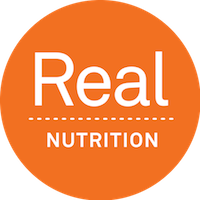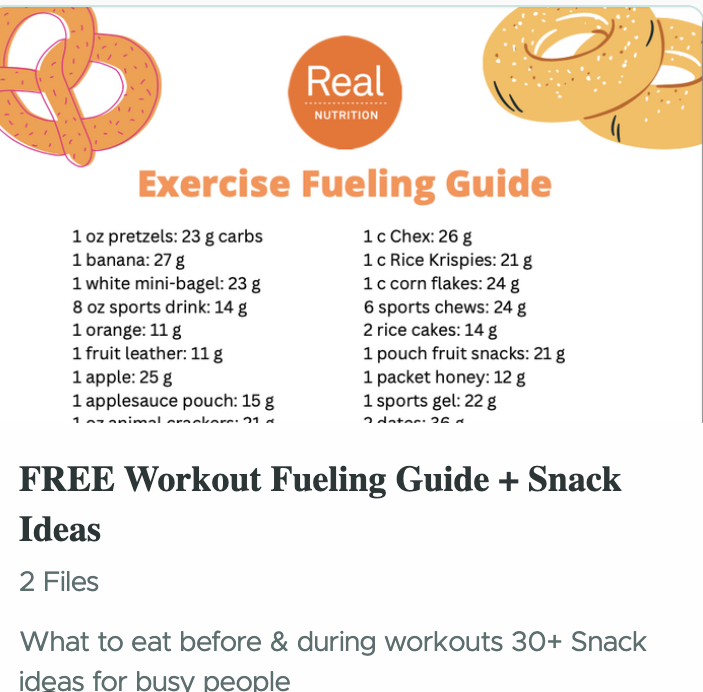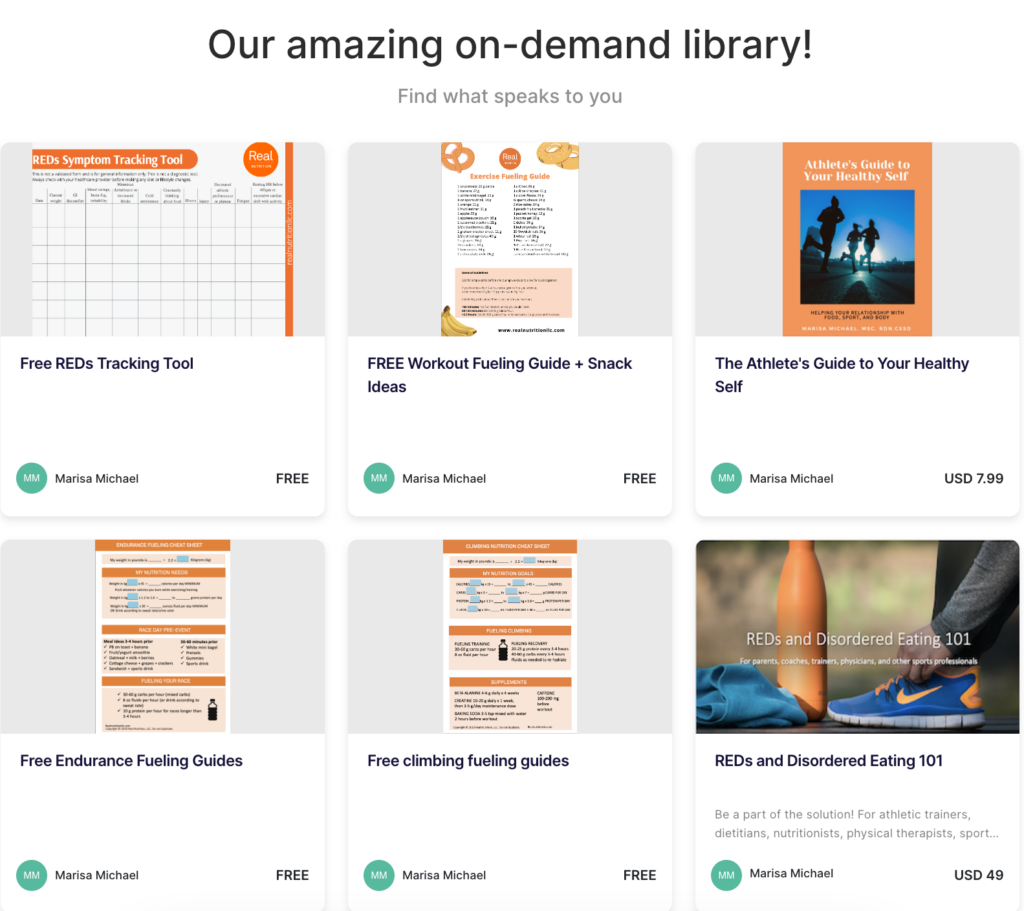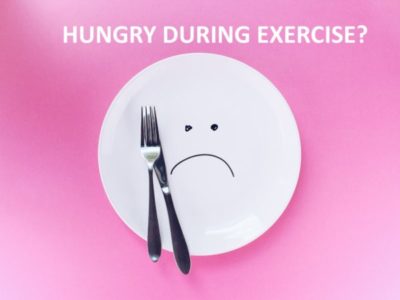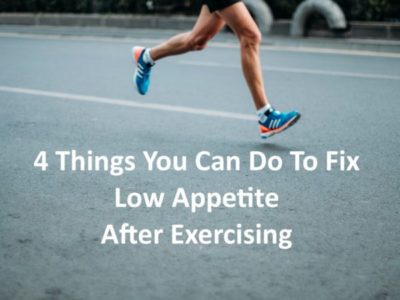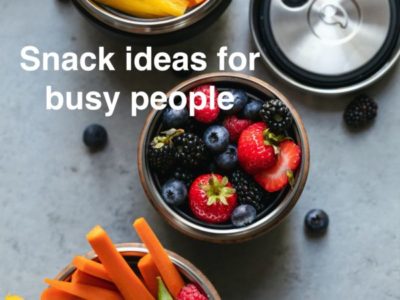Is processed food bad?
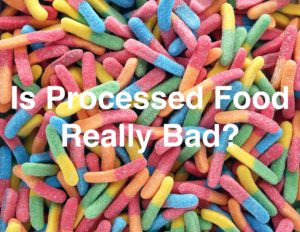
By Amity Warme and Marisa Michael
You may have heard to avoid processed foods. However, most food is processed in some way. It is not necessary–or even possible–to avoid all processed foods! Common foods such as bagged spinach, steel cut oats, baby carrots, milk, and countless other foods are processed in some way in order to make them safe or easier for the consumer. Ultra-processed foods such as candy, donuts, or chips are not as healthful, but still can be a part of a balanced diet.
What is considered a processed food?
Processed foods are anything that has been altered in some way during preparation
-
- Canning, freezing, baking – not all ‘processed’ food is bad. Some foods need processed to be safe (milk) or useable (oils)
- Examples:
- Breakfast cereal, cheese, canned veggies, bread, baked goods, crackers, microwave meals, meat products such as bacon, sausage, salami
What makes some processed foods less healthy/nutritious?
-
- Ingredients added to make flavor more appealing and extend shelf life
- Sugar, salt, trans fat
- Calorie dense but nutrient poor
- It is easy to overconsume these things when eating processed foods without realizing it
- Overconsuming ultra-processed foods may come at the expense of not consuming enough whole, nutrient dense foods
- Filling up on high calorie/sugar/fat foods may mean you miss out on quality protein, carbs, fiber, vitamins, and minerals
- Restricting yourself too much of these foods may lead to binge-like behaviors or addictive-like feelings to food
- Sugar, salt, trans fat
- Ingredients added to make flavor more appealing and extend shelf life
What are the categories of processed foods?
-
- Group 1: minimally processed and unprocessed (may have gone through roasting, boiling, or pasteurization)
- Fruits, vegetables, grains, beans, nuts
- Group 2: processed culinary ingredients obtained directly from group 1 or from nature
- Olive oil, maple syrup
- Group 3: Processed foods made by adding ingredients such as salt, sugar, or other substances from group 2 to group 1
- Breads, fruits canned in syrup, cheese
- Group 4: ultra-processed foods. Contain little, if any, ingredients from group 1 . Meant to be convenient, hyper-palatable, cheap, and shelf stable. High in sugar, refined grains, fats, preservatives, and salt
- Contain substances you wouldn’t use in food prep at home
- Hydrolyzed proteins, modified starches, hydrogenated oils, colorants, flavorings, bulking agents, and artificial sweeteners
- Sugary beverages (soda, coffies, energy drinks), sweet or savory packages snacks (chips, cookies), sweetened breakfast cereals (Froot Loops, Trix), baking mixes, reconstituted meat products (bacon, sausage, hot dogs), frozen or microwave meals, instant soups, candies and pastries, energy bars, protein bars and shakes, ice cream, etc
- Contain substances you wouldn’t use in food prep at home
- Group 1: minimally processed and unprocessed (may have gone through roasting, boiling, or pasteurization)
When would it be ok to eat highly-processed foods?
There are circumstances when athletes may benefit from processed foods such as bars, gels, and protein powders through:
-
- Training multiple hours a day may and unable to consume enough energy through whole foods alone
- The condensed calories in processed foods can help meet energy needs without making the athlete feel overly full
- When traveling light is important, such as on multipitch climbs or backcountry travel
- In between climbs when easily digested sugars are helpful for maintaining energy levels but don’t want too much in your stomach (feeling overfull)
- Training multiple hours a day may and unable to consume enough energy through whole foods alone
It is important to find a balance between nutrient dense, whole foods that meet your macro and micronutrient needs and and processed foods that can meet a need functionally (lightweight, packable, high calorie for high output) or socially (birthday cake at a party, burger at at restaurant with friends, etc.)
As with most things nutrition, whether to eat more or less-processed food depends on the person and the situation. Taking a flexible approach is usually the best approach.
| More processed foods may be useful when | Less processed foods may be useful when… |
| It’s hard meet your energy or macronutrient needs with whole foods (i.e., you need protein powder to meet your protein needs) | You want a healthful overall diet pattern with the majority being whole foods |
| You need easily-digestible food for pre-workout and intra-workout fueling | You are on a limited calorie budget and want to feel full with fibrous foods |
| You need light, packable food for backcountry trips | You want a wider range of foods, tastes, and textures in your diet |
`This is general information only and not nutrition advice. Always consult with your healthcare professional before changing any diet or lifestyle patterns.
Don’t miss out! Get our free fueling guide!
Subscribe to our newsletter!
Check out our amazing nutrition resources, including on-demand courses, free downloads, and webinar replays.
- Nutrition for Climbers
- The Ultimate Guide to Useful Sports Supplements
- Ditch Diets and Become an Intuitive Eater
And be sure to follow us on Instagram!
